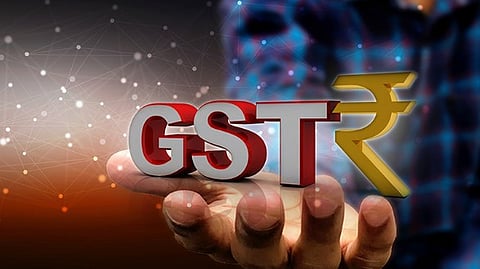

Goa’s in dustry leaders have offered a mixed but largely positive response to the Union govern ment’s sweeping Goods and Services Tax (GST) reforms, with the hospitality sector hailing tax cuts on mid-range hotel rooms, even as concerns remain over operational clari ty and the loss of benefits un der the new regime. The revised GST framework, which takes effect on Septem ber 22, reduces the tax rate on hotel rooms priced up to Rs 7,500 per night from 12% to 5%, while tariffs above that level will continue to attract 18%.
For Goa’s tour ism-driven economy, which relies heavily on budget and mid-market visitors, the low er rate is expected to provide much-needed relief. Jack Sukhija, President of the Travel and Tourism Associ ation of Goa (TTAG), called the reduction positive but raised concerns about losing input tax credit benefits and the op erational challenges this could create. "The tax rate has come down from 12% to 5%, but this gets neutralised because we lose the input tax credit facility.
For tariffs above Rs 7,500, hotels collect 18% with complete ITC benefits. But how do we distinguish input tax payments for rates below Rs 7,500 versus those above? We need more clarity on this," he explained. TTAG has thanked the cen tral government for the re forms while advocating for a flat 5% rate across all hos pitality and tourism segments, plus tax ex emptions for services provid ed to foreign tourists.
However, not all hoteliers shared this measured opti mism. Gaurish Dhond, Presi dent of the All Goa Hotelier As sociation (AGHA), expressed dissatisfaction with the re forms, stating his organisation had informed the Chief Min ister that the hotel industry needed benefits but received no relief. "We are not happy. We want a flat 5% slab so that the benefit will reach custom ers," Dhond said, reflecting the desire for more comprehen sive reform across the sector.
The policy changes extend to hotel restaurants, bringing them under the 5% bracket without input tax credit — a move that could benefit larg er establishments previously charging 18%. Beach shack operators have also welcomed the development, with Cruz Cardozo, President of the Goa Shack Owners Welfare Society (GSOWS), saying the decision will encourage greater tour ist arrivals. "This decision is welcome. Many shack owners' families run hotels too, and lower room rates due to GST cuts will help boost tourism throughout the state," Cardozo observed. Beyond tourism, Goa's in dustrial sector has embraced the reforms with consider able enthusiasm.
The Verna Industries Association (VIA) described the changes as ‘GST 2.0’ reforms that would ben efit industries and consum ers while stimulating overall economic growth. VIA Pres ident Kalpak Arware said the reforms would create a simplified tax structure at a crucial time when India fac es tariff challenges from the United States. Arware highlighted that the cuts would have wide-rang ing benefits across sectors including agriculture, FMCG, pharmaceuticals, manufactur ing, electronics, automobiles and services. For Goa specifi cally, he noted that the State's pharmaceutical and consum er goods sectors would gain significantly, especially with 33 life-saving drugs being exempted from GST and re duced rates on appliances like air-conditioners and dish washers spurring consumer demand.
The automobile sector in Goa has also welcomed the reforms, with the Federation of Automobile Dealers Asso ciation (FADA) Goa chapter stating that the changes would simplify taxation and make ve hicles more affordable.